If you’re visiting South Africa for the first time, you might be wondering whether major destinations like Cape Town are safe for tourists like you. This isn’t an uncommon question at all. South Africa does experience high rates of crime – but that shouldn’t dissuade you from visiting. In fact, you can rest assured that when it comes to visiting Cape Town on holiday, you’ll get to enjoy one of the most incredible cities on the planet.
Crime is a fact of life no matter where you go in the world, but if you familiarise yourself with your destination, its people, and its culture, you can enjoy a stress-free vacation with your friends and family. With that in mind, we’ve put together a handy guide to tourist safety in Cape Town, South Africa. Read on to learn how law enforcement services – and some common sense – will keep you safe on your next visit.
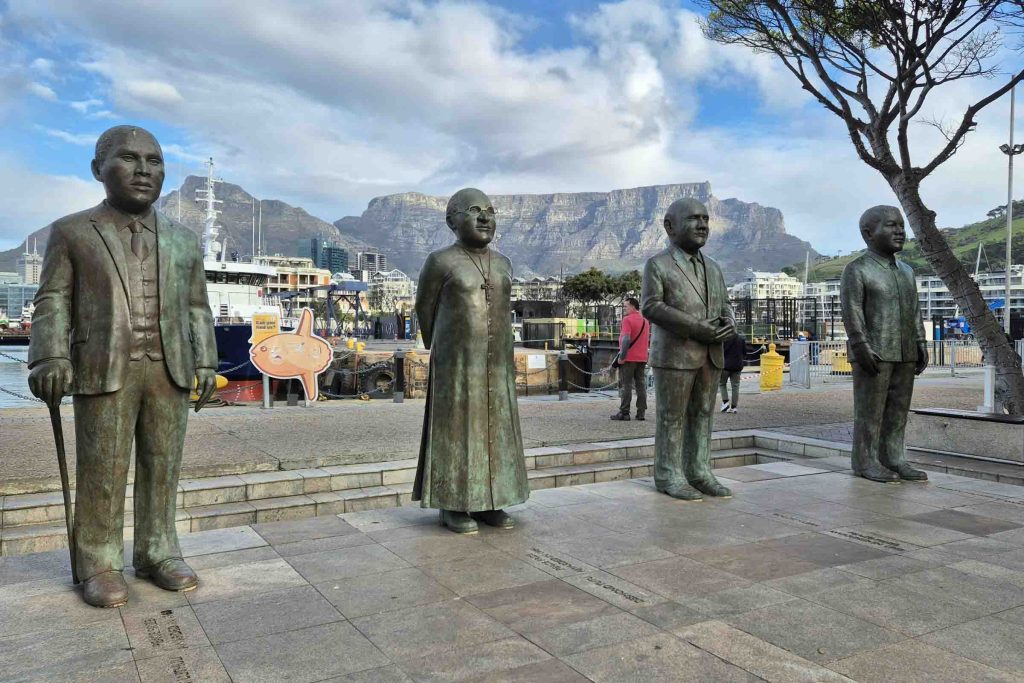
Statues of Nelson Mandela, Desmond Tutu, FW de Klerk, and Nkosi Albert Luthuli, South Africa’s four Nobel Peace Prize winners. Photo: Unsplash
Before you learn the ins and outs of safety in Cape Town, you need to understand a bit about South Africa’s historical context and socio-economic conditions in the country. In 1994, South Africa broke free from the shackles of apartheid, a cruel, evil political system that enabled the white minority to oppress the black majority with total impunity. In 2024, we celebrated 20 years of democracy in South Africa, but as with many places in the world, the legacy of colonialism still looms large.
Historically, people couldn’t simply live where they wanted to in Cape Town. The city was segregated according to race: those with privilege lived in and around the City Bowl, which is the modern Central Business District (CBD), while people of colour were forced to live much further away. This was one tool that the apartheid government used to economically oppress “non-white” people.
Sadly, while much has changed, this remains the reality for many of Cape Town’s citizens. South Africa is ranked as one of the most unequal places in the world, and as a result, there is still a degree of “spatial apartheid” in the city’s layout, with the poorest and most vulnerable people still far removed from the CBD. Central Cape Town is simply unaffordable for the majority of Capetonians, leaving much of the working class with little option but to commute huge distances to and from work each day.
Furthermore, those with wealth and privilege still own much of the “prime property” throughout the city, slowing the redistribution of wealth post-apartheid. And, where there’s wealth, there generally tends to be far less crime. Conversely, poverty and other socio-economic ills create desperation and much higher crime rates.
Ultimately, this means that some parts of Cape Town are significantly more dangerous than others. Take the CBD, for example. Areas like Tamboerskloof, Oranjezicht, Camps Bay, and Clifton experience far less crime than outlying areas like the Cape Flats, Khayelitsha, and Nyanga. As it so happens, these safer areas are also the most popular with tourists.
So, if you look at crime statistics across Cape Town as a whole, they’re relatively high. However, there is huge disparity and in some areas, you would think you’re living in the safest place in the world. Law enforcement is also stretched thinly in areas with higher crime rates, while in popular tourist areas, you’re likely to see much more of a police and security presence.
We understand that these complexities are far more apparent to locals than they are to visitors, so how can you ensure that you stay safe when you visit Cape Town?
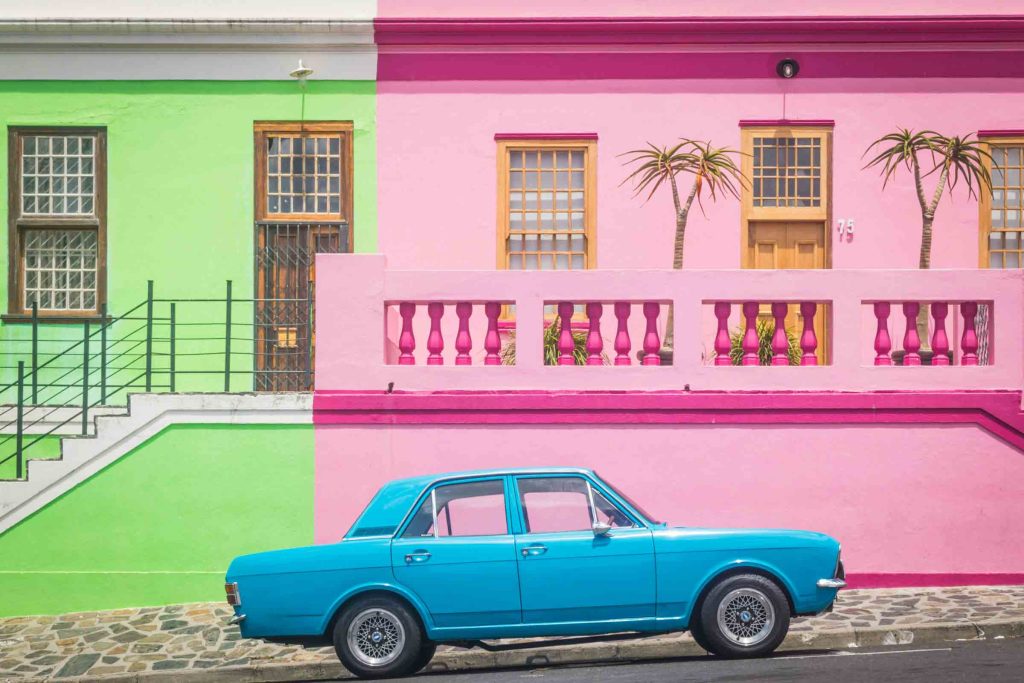
The colourful houses of Bo-Kaap. Photo: Unsplash
Follow these guidelines and you can experience Cape Town at its best. At the same time, part of the appeal of visiting South Africa is coming to terms with its difficult history and the lessons we can learn from it, so don’t disconnect yourself from reality – it’s all about common sense and understanding!
Local authorities pour plenty of resources into protecting our most beautiful and vibrant areas. Some of the most popular tourist destinations in Cape Town include:
There are, however, some exceptions. Bo-Kaap, for example, is tucked away in the City Bowl, but it experiences higher crime rates relative to the rest of the area. Always follow your tour guide’s instructions and try to keep your valuables hidden!
Even in the best of areas, non-violent crime like car break-ins can be common. Here’s how to keep safe:
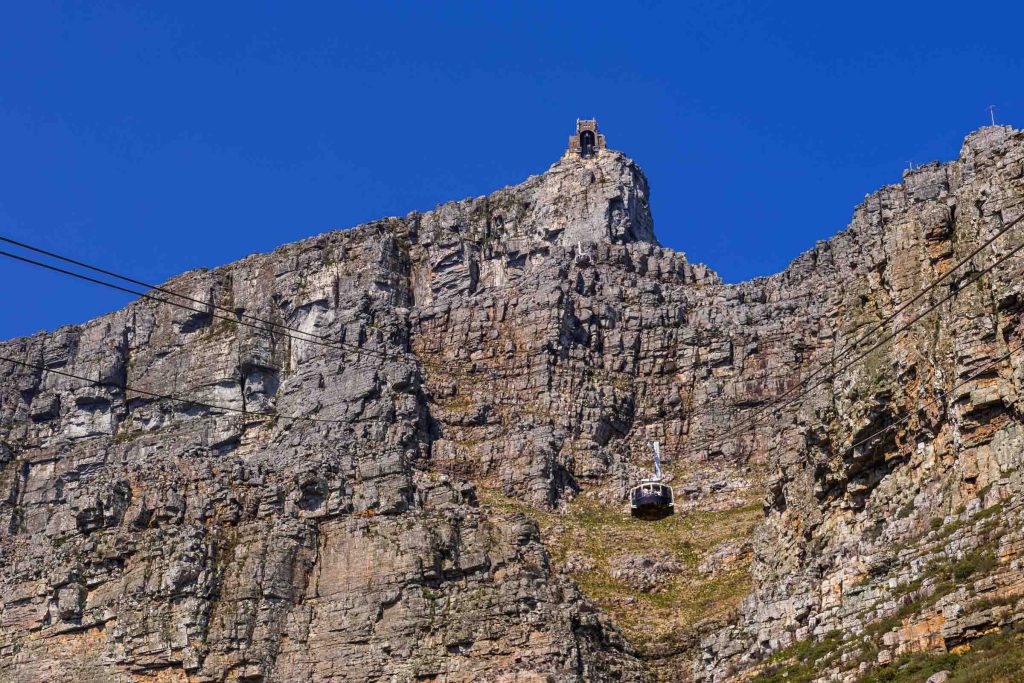
The cable car station at the top of Table Mountain. Photo: Unsplash
In Cape Town, especially near the more mountainous regions, you may come across a baboon – or even an entire troop! They’re especially common in the Deep South and at Cape Point. Unlike baboons in other parts of South Africa, these guys are quite used to humans, making them daring and dangerous.
Cape Town’s coastline is home to various shark species, including great whites, making shark safety an essential consideration for beachgoers and water enthusiasts. While shark attacks are incredibly rare, the city has established several safety measures, such as the Shark Spotters programme, which positions trained spotters at popular beaches like Muizenberg, Fish Hoek, and St James.
These spotters monitor shark activity from elevated vantage points and use a flag system to inform beachgoers about water safety. Green flags indicate clear waters, while a red or white flag warns of recent shark sightings. Additionally, an alarm may sound to signal immediate evacuation if a shark is nearby. Swimmers, surfers, and kayakers are advised to avoid the water during dawn and dusk when shark activity tends to increase and to stay within designated swimming areas where visibility is higher. Shark Spotters also offer a free app, providing real-time beach information to help users make informed decisions.
If you want to see sharks in a safer way, visit the Two Oceans Aquarium or book a shark cage diving tour with a reputable operator.
Cape Town is home to several highly-venomous snake species, including the Cape cobra, boomslang, and puff adder. The puff adder is especially dangerous and causes more life-threatening snake bites than any other snake in Africa. Luckily, your chances of coming across a snake are very slim, but you still need to stay vigilant in certain areas.
For example, Cape Town is one of the best urban hiking destinations in the world, with numerous trails zig-zagging across Table Mountain. If you’re hiking during the hottest hours of the day, you need to be extra cautious about where you step. If you or someone else is bitten, call the Poison Information Hotline immediately on 0861 555 777.
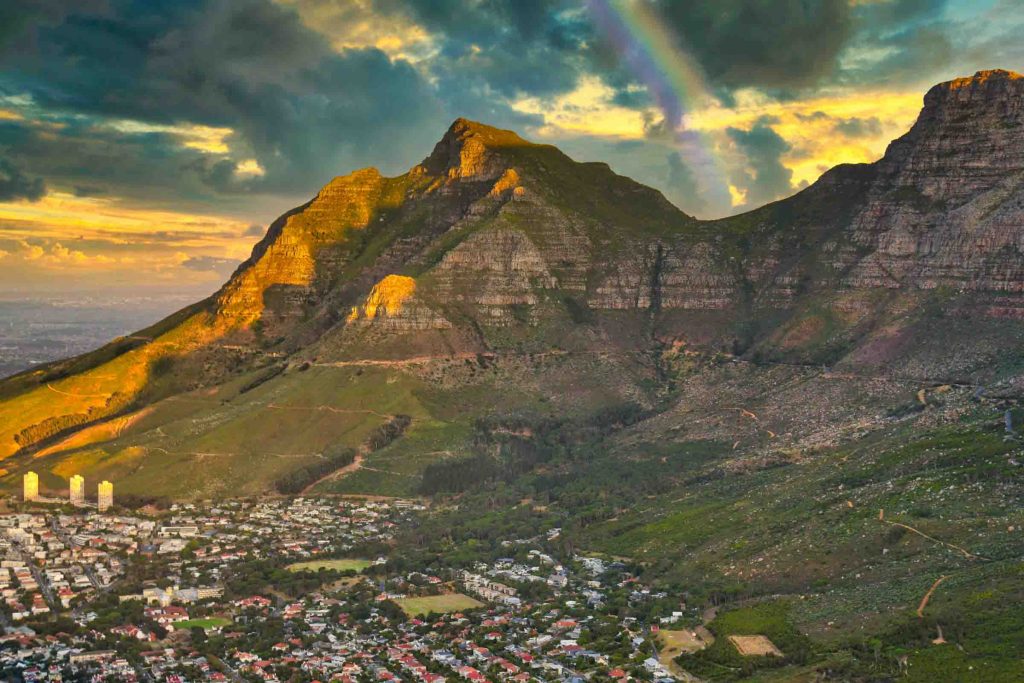
Devils Peak in Cape Town overlooking the City Bowl. Photo: Unsplash
General Emergencies: 112
South African Police Service: 10111
Ambulance: 10177
Medical & Fire: 021 535 1100
Table Mountain National Park Emergencies: 021 480 7700
Sea and Mountain Rescue: 021 948 9900
National Sea Rescue Institute (NSRI): 087 094 9774
Baboon Monitors: 071 588 6540
Shark Spotters: 078 174 4244
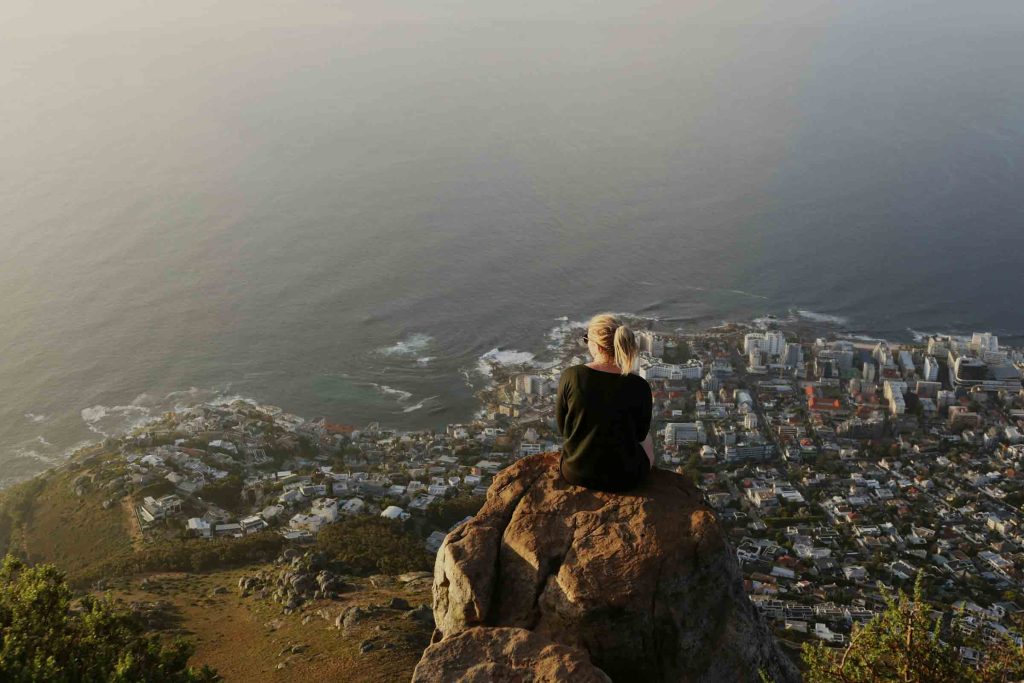
The view from Lions Head. Photo: Unsplash
Yes, Cape Town is most definitely safe for tourists – as long as you stay far away from high-risk areas and stay vigilant at all times. Keep emergency numbers on hand and always be aware of your nearest hospital and police station. And, when you’re out on the mountain or in the ocean, keep an eye out for dangerous wildlife.
The purpose of this article isn’t to scare you or put a damper on your dream holiday. In fact, we want to assure you that no matter when you visit Cape Town, you’ll experience the trip of a lifetime, filled with world-class beaches, spectacular culture, and genuine South African hospitality. So, when you’re ready to book your vacation, browse our car rental options at the top of the page and secure your set of wheels – a road trip is the best way to enjoy everything that the Mother City has to offer.